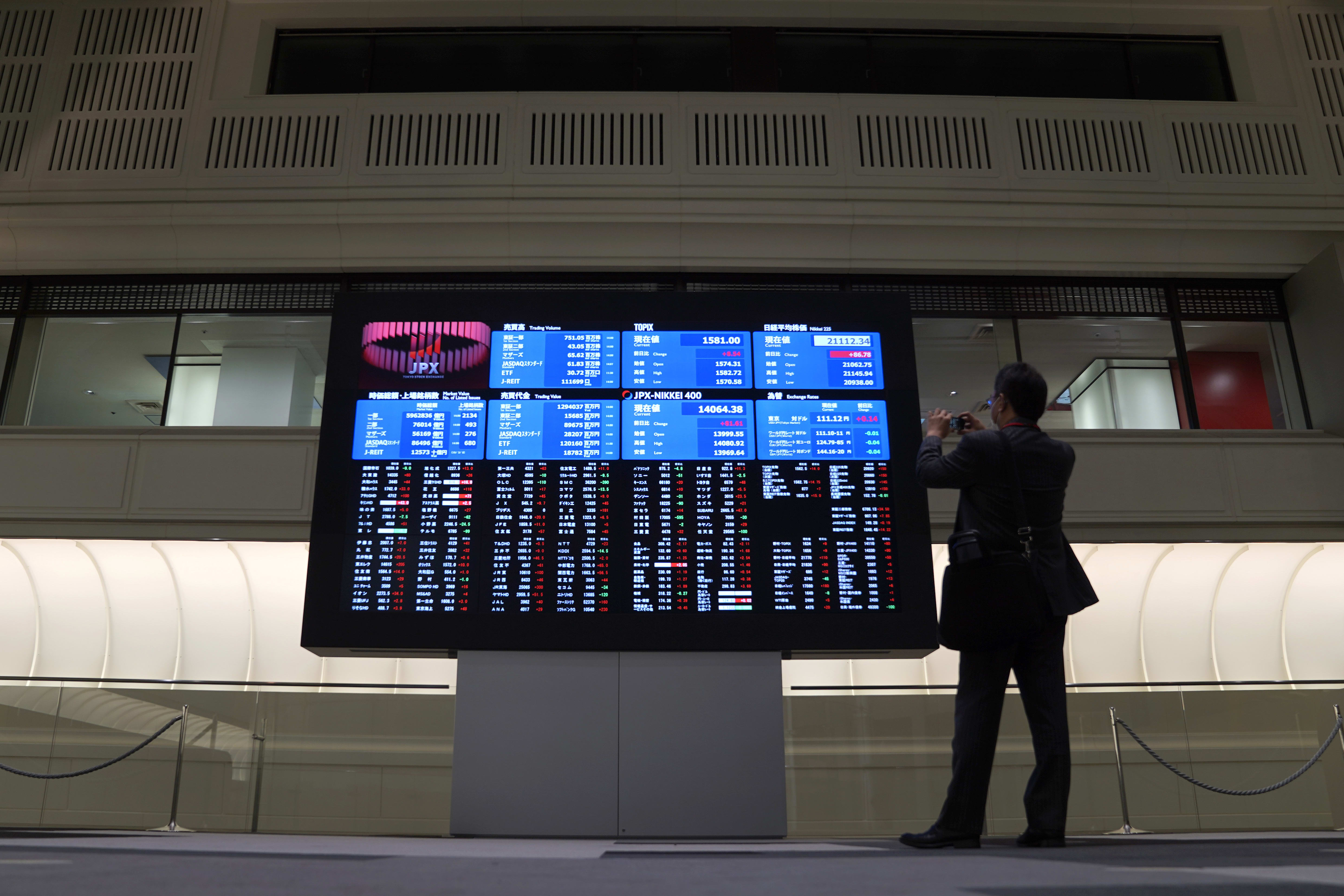
Stocks in Asia Pacific were mostly lower on Friday as tensions between Beijing and Washington weighed on investor sentiment.
Hong Kong’s Hang Seng index led losses among the region’s major markets, dropping 1.6% to close at 24,531.62. Shares of Chinese tech firms listed in the city tumbled. Chinese tech juggernaut Tencent plunged 5.04% while Semiconductor Manufacturing International Corporation‘s stock in Hong Kong dropped 8.7%.
Mainland Chinese stocks also declined on the day, with the Shanghai composite down 0.96% to approximately 3,354.04 while the Shenzhen component shed 1.548% to around 13,648.50.
U.S. President Donald Trump on Thursday issued executive orders banning U.S. transactions with Chinese tech firms Tencent and ByteDance. The ban will take effect in 45 days and could attract retaliation from Beijing. The latest development comes as tensions between the two economic powerhouses have heated up in recent weeks.
Elsewhere in the region, the moves were more muted. Japan’s Nikkei 225 slipped 0.39% to close at 22,329.94 while the Topix index shed 0.2% to end its trading day at 1,546.74. Shares in Australia declined, with the S&P/ASX 200 down 0.62% to close at 6,004.80.
South Korea’s Kospi bucked the overall trend regionally as it closed 0.39% higher at 2,351.67.
Overall, the MSCI Asia ex-Japan index fell 0.85%.
Stocks on the move
In corporate news, shares of Korean Air Lines surged 5.52% on Friday. The moves came after the airline reported a net profit in the second quarter on the back of strong cargo demand, according to local news agency Yonhap. The positive earnings report came despite the coronavirus pandemic’s toll on the global airline industry.
Japanese game maker Nintendo also saw its stock jump 2.58% on Friday after the firm reported Thursday a 428% surge in profits.
Economic data watch
On the economic data front, data released Friday by China’s General Administration of Customs showed dollar-denominated exports in July rose 7.2% from a year ago. That was far beyond the 0.2% year-on-year decline in China’s dollar-denominated exports expected by economists in a Reuters poll.
Meanwhile, the customs data also showed dollar-denominated imports fell 1.4% from a year ago, against predictions of a 1% year-on-year rise.
Looking ahead, the U.S. jobs report for July is set to be released at 8:30 a.m. ET Friday. Economists estimate 1.48 million jobs were added in July, down sharply from the 4.8 million in June, according to Dow Jones.
RBA monetary policy statement
The Reserve Bank of Australia said in its monetary policy statement released Friday that the pace of recovery of the Australian economy is “expected to be slower than previously forecast.”
“Generalised uncertainty and deficiency in demand have turned out to be more of a drag on growth than previously thought,” the Australian central bank said, acknowledging that recent measures taken to address the coronavirus spread in the state of Victoria “will further delay the recovery.”
The Australian dollar changed hands at $0.7211 following the RBA’s monetary policy statement release, having seen an earlier high of $0.7243.
The U.S. dollar index, which tracks the greenback against a basket of its peers, was at 93.129 after sliding from levels above 93.6 this week.
The Japanese yen traded at 105.58 per dollar after seeing levels around 106.4 against the greenback earlier in the trading week.
Oil prices were lower in the afternoon of Asian trading hours. International benchmark Brent crude futures were down 0.42% to $44.90 per barrel. U.S. crude futures also dipped 0.52% to $41.73 per barrel.
Here’s a look at what’s on tap:
- U.S.: July jobs report at 8:30 a.m. ET Friday
Clarification: This article was updated to correct one reference to the upcoming U.S. jobs report for July, which is expected at 8:30 am. ET Friday.
Source: CNBC
